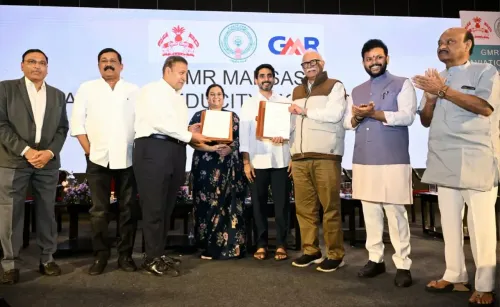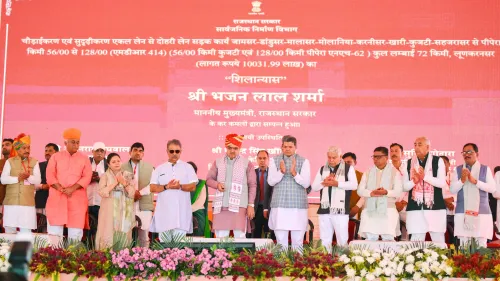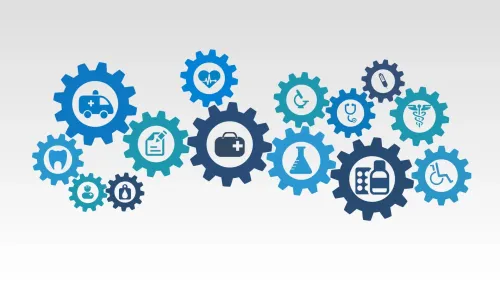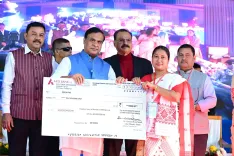FAME India Phase-II Initiative Aids Over 16.14 Lakh EVs: Government

Synopsis
Key Takeaways
- FAME India Phase-II supports over 16.14 lakh EVs.
- Scheme promotes e-2Ws, e-3Ws, e-4Ws, e-buses.
- Implemented with a budget of Rs 11,500 crore.
- Encourages domestic manufacturing through various incentives.
- Includes several programs to enhance the EV ecosystem.
New Delhi, Feb 13 (NationPress) With India intensifying its focus on domestic production of electric vehicles (EVs), the Faster Adoption and Manufacturing of (Hybrid and) Electric Vehicles in India (FAME India) Scheme Phase-II has facilitated the support of over 16.14 lakh EVs, as announced by the government on Thursday.
The FAME India Phase II scheme was launched for a duration of five years starting from April 1, 2019, with a total financial backing of Rs 11,500 crore.
This initiative provided incentives for e-2Ws, e-3Ws, e-4Ws, e-buses, and EV public charging stations.
As of December 31, 2024, the FAME India Phase-II Scheme has supported at least 16,14,737 EVs, as reported by the Minister of State for Steel and Heavy Industries, Bhupathiraju Srinivasa Varma, in a written response in the Rajya Sabha.
This total includes 14,28,009 two-wheelers, 1,64,180 three-wheelers, and 22,548 four-wheelers.
The Ministry of Heavy Industries has initiated various schemes to enhance the EV ecosystem and promote the adoption of electric vehicles across the nation.
The Production-Linked Incentive (PLI) Scheme for the Automobile and Auto Component Industry in India (PLI-Auto) was authorized on September 23, 2021, to bolster India’s manufacturing capabilities for advanced automotive technology (AAT) products, with a budgetary allocation of Rs 25,938 crore.
This scheme offers financial incentives to encourage domestic production of AAT products with a minimum of 50 percent domestic value addition (DVA) and to attract investments in the automotive manufacturing supply chain.
Moreover, the PLI Scheme for Advanced Chemistry Cell (ACC) was approved on May 12, 2021, aimed at manufacturing ACC within the country, with a budget of Rs 18,100 crore.
This initiative seeks to create a competitive domestic manufacturing ecosystem for 50 GWh of ACC batteries.
The PM Electric Drive Revolution in Innovative Vehicle Enhancement (PM E-DRIVE) Scheme, with an outlay of Rs.10,900 crore, was announced on September 29, 2024.
This two-year scheme is designed to support various electric vehicles including e-2W, e-3W, e-Trucks, e-buses, e-Ambulances, EV public charging stations, and the upgrade of testing agencies.
Additionally, the PM e-Bus Sewa-Payment Security Mechanism (PSM) Scheme, notified on October 28, 2024, has a budget of Rs 3,435.33 crore and aims to facilitate the deployment of over 38,000 electric buses.
The Scheme for Promotion of Manufacturing of Electric Passenger Cars in India (SPMEPCI) was introduced on March 15, 2024, to encourage the production of electric cars in India.
Applicants are required to invest a minimum of Rs 4,150 crore and to achieve a minimum domestic value addition (DVA) of 25 percent by the end of the third year and 50 percent by the end of the fifth year.










